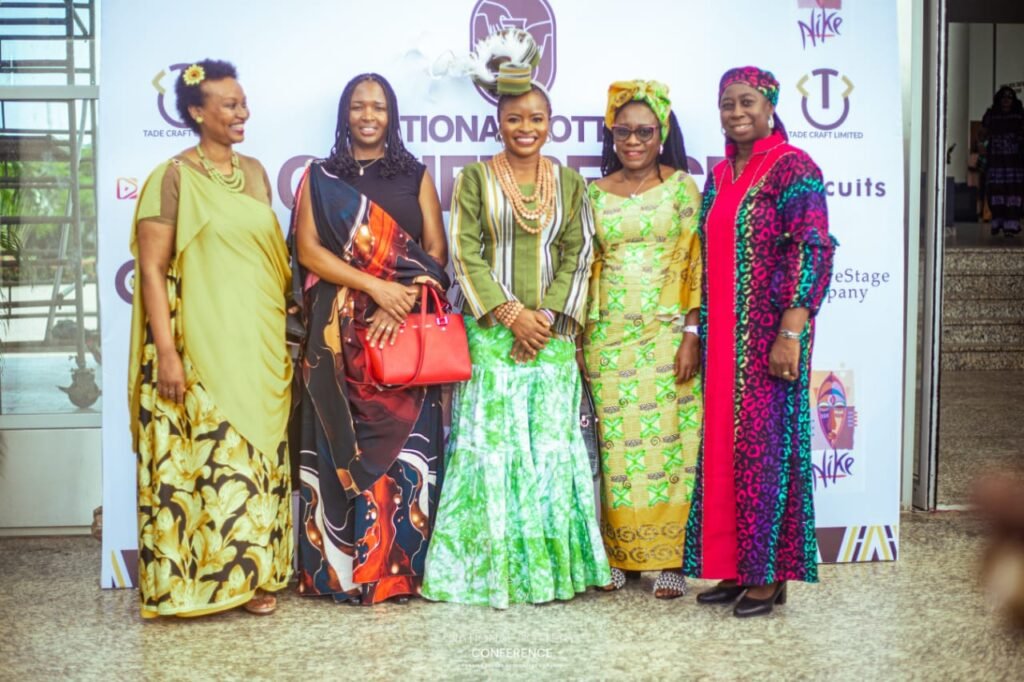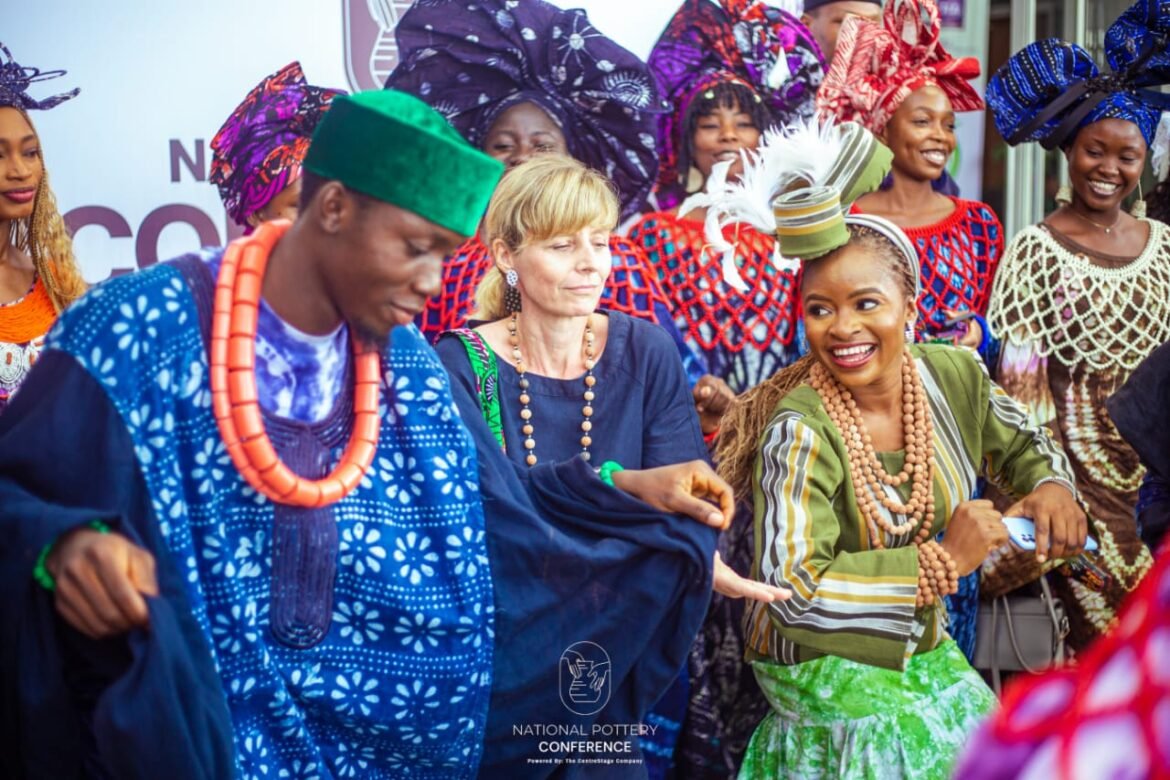As part of efforts aimed at reviving Nigeria’s culture through pottery, the founder, Tade Craft, Bamikole Blessing has spotlighted the essence of culture and restoration of Nigeria’s heritage, exploring
pottery not just as art, but a tool for mental wellness, and economic development.
Blessing while speaking at the National Pottery Conference 2025 in Abuja noted that the conference was born out of personal healing journey using pottery, explaining that the clay does much than its general use but restores wellness.
“This conference was born out of my own personal healing journey,”
“I discovered that clay does more than create — it restores. And we need more spaces like this that celebrate our cultural identity while offering therapeutic and economic value.”

The Minister of Arts, Culture & Creative Economy, Hannatu Musa Musawa, applauded the conference as “a national necessity,” reinforcing the government’s support for reimagining indigenous culture as a driver of wellness and economic value.
Director-General of the National Council for Arts and Culture (NCAC), Mr. Obi Asika, in his goodwill message emphasized that
Every pot holds a story. And every story, a nation’s heritage.”
Leading scholar and culture advocate, Prof. Farida Garkida, spoke on the role of women and science in indigenous craft
noted that “Pottery is not just creative — it is scientific. It connects chemistry, material science, and tradition. And women, historically, have been at the center of that innovation.”
She called for stronger research, investment in tools, and the need to document traditional knowledge for future generations.
Founder of Arewa Pottery, who shared a raw and moving story of how clay helped her process grief, illness, and infertility said “Pottery gave me space to feel without explanation. In our studio, we don’t just mold clay — we mold hope.”
Guests participated in an immersive potter’s wheel experience, viewed curated ceramic exhibitions, and explored conversations around self-expression, climate-conscious alternatives to plastic, and the future of handmade African design.
The tour offered a powerful reflection on leadership, legacy, and the role of civic memory in shaping national identity. For many attendees, it deepened the emotional resonance of the day connecting the creative future of Nigeria to the values and vision of its past.



